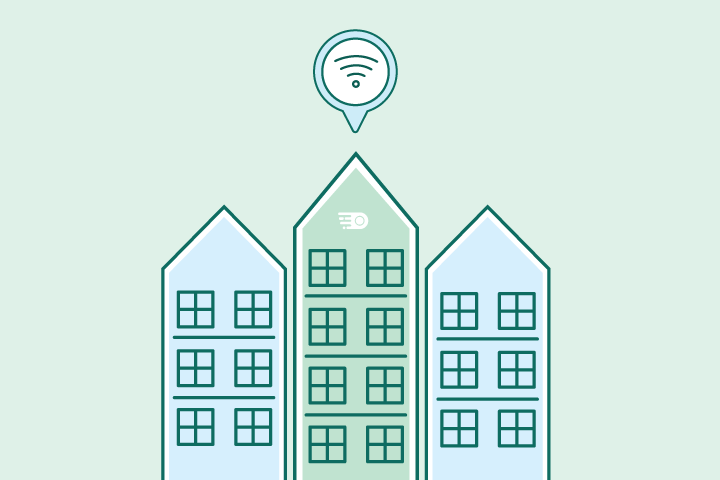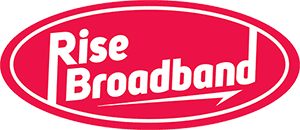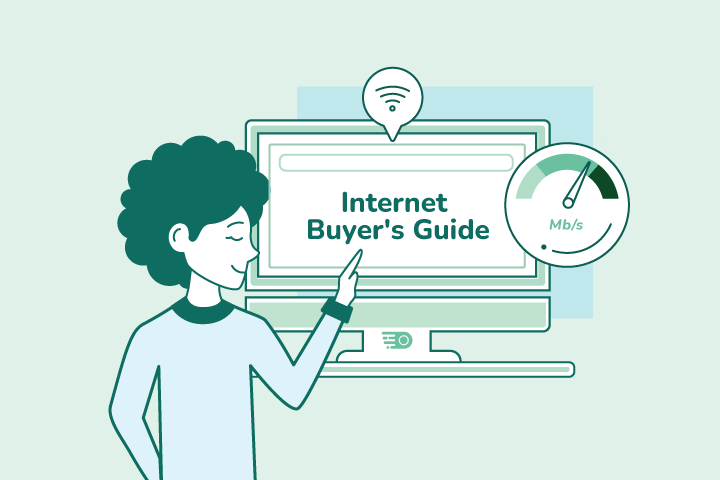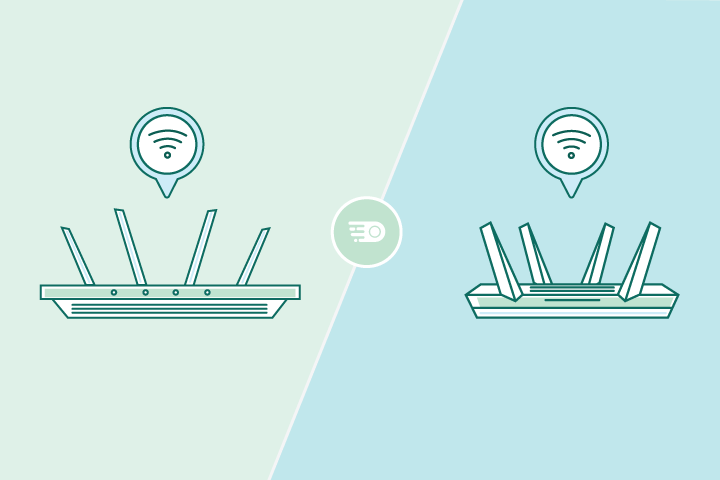How to Get Internet & WiFi for Apartments

HighSpeedOptions prides itself on providing honest, quality content. While we may be compensated when you make a purchase through links on our site, all opinions are our own. Here's how we make money.
Table of Contents
Since most apartment buildings are in urban areas, you’ll likely have access to several types of internet connections and internet providers. Here’s a look at the best ways to get internet and WiFi for apartments and condominiums.
At a Glance: Internet & WiFi for Apartments
- Check apartment wiring and service options before choosing an internet provider.
- Fiber, 5G, fixed wireless, and cable are the top internet choices for most apartment dwellers.
- Fiber offers the best speed and reliability but isn’t available everywhere.
- Cable is widely available but slower during peak hours.
- DSL is cheap and available but too slow for most users.
- Wireless options like 5G and fixed wireless are fast, flexible, and easy to install.
- Hotspots and public WiFi can work in a pinch but aren’t ideal for regular use.
- Choose internet speeds based on your needs, from basic browsing to 4K streaming.
- Installation varies by type, with wired often needing appointments and wireless typically plug-and-play.
- Secure your connection by changing router defaults, using strong passwords, enabling encryption, and monitoring devices.
- Compare providers and plans to find the best fit for your apartment’s setup, budget, and usage habits.
Choosing the Best Internet for Your Apartment
Before you begin your search for the best internet option for your apartment, you’ll want to know a few things about your apartment and the building itself. To help narrow down the choices, start by answering these questions:
- Does the apartment building or property manager offer internet or WiFi to tenants, whether it’s included in monthly rent or as an add-on?
- Is the building and your apartment “internet ready” – meaning is the cabling for internet service already installed? (You may have to pay additional installation fees if it is not.)
- If it is pre-wired, what kind of internet service is it wired for…fiber? Cable? DSL?
Best Internet for Apartments
We’ll get into the different types of internet, what they offer, and how to choose what’s right for you shortly. But when it comes to internet options in general, not all connections are created equal. For most situations, we would recommend fiber, fixed wireless, 5G, and then cable internet for your apartment. Why? These types of internet are the fastest, most reliable, and widely available for most apartment dwellers.
Even so, your solution will depend on your needs and location. Fixed wireless might be faster and more dependable than cable, but it’s typically more expensive and not as widely available. You might live in an area that only offers 5G or DSL as a solution.
Take a look at our overall comparison chart ranking the different types of internet for apartments.
| Internet type | Monthly price range | Download speed range | Reliability | Availability | Top providers |
| Fiber | $50-$200 | 100-10,000 Mbps | Very reliable | Limited to urban areas, but becoming more available | AT&T, Google Fiber, Verizon Fios, Frontier, EarthLink |
| Fixed Wireless | $45-$70 | 10-10,000 Mbps | Private, secure connection | Limited | EarthLink |
| 5G Home Internet | $35-$75 | 85-1,000 Mbps | Moderately reliable | Widely available near cell towers | T-Mobile, Verizon, EarthLink |
| Cable | $40-$140 | 50-1,000 Mbps | Frequent outages, slowdowns during peak usage | Widely available | Xfinity, Cox, Spectrum, Optimum |
| Internet type | Fiber |
| Monthly price range | $50-$200 |
| Download speed range | 100-10,000 Mbps |
| Reliability | Very reliable |
| Availability | Limited to urban areas, but becoming more available |
| Top providers | AT&T, Google Fiber, Verizon Fios, Frontier, EarthLink |
| Internet type | Fixed Wireless |
| Monthly price range | $45-$70 |
| Download speed range | 10-10,000 Mbps |
| Reliability | Private, secure connection |
| Availability | Limited |
| Top providers | EarthLink |
| Internet type | 5G Home Internet |
| Monthly price range | $35-$75 |
| Download speed range | 85-1,000 Mbps |
| Reliability | Moderately reliable |
| Availability | Widely available near cell towers |
| Top providers | T-Mobile, Verizon, EarthLink |
| Internet type | Cable |
| Monthly price range | $40-$140 |
| Download speed range | 50-1,000 Mbps |
| Reliability | Frequent outages, slowdowns during peak usage |
| Availability | Widely available |
| Top providers | Xfinity, Cox, Spectrum, Optimum |
 Wired Internet Options: Fiber, Cable & DSL
Wired Internet Options: Fiber, Cable & DSL
Most apartment buildings are already pre-wired for some type of internet connection, whether that be fiber, cable, or DSL internet. Here are the most common types of wired internet services available in apartment buildings or complexes:
Fiber Internet
Fiber internet is delivered over cables comprised of thin glass fibers, called fiber-optics. These fiber optic cables transmit data via light instead of electric signals to deliver a fast and reliable connection.
It is superior to other internet connection types because it’s fast and has enormous growth potential as the technology advances. Fiber also has very low internet latency and can support many devices and demanding activities like streaming HD video. You’re more likely to have access to fiber if your apartment is in an urban area, but it might also be more expensive than other internet options.
Most fiber internet plans will cap out at 2,000 Mbps (or 1 Gig), though some providers offer residential speeds up to 5 Gigs. Given these speeds, enhanced security, stability, and rare connectivity disturbances, fiber-optic internet is a go-to option for high-speed internet in an apartment.
Our Top Provider Pick for Fiber Internet
Cable Internet
Cable internet is widely available from various providers that frequently offer bundled services. Three out of five homes have cable internet in the US alone. It also offers high speeds and might include unlimited data, depending on the provider.
Cable internet uses a coaxial cable for a solid connection to your provider’s network instead of copper phone lines. This is the same cabling that connects to your cable TV service, so most apartments are already wired for it.
Though its wide availability makes it a popular option for apartment dwellers, cable’s speed and reliability are inferior to that of fiber internet. Most cable plans will only range from 100 Mbps to 1,000 Mbps. Cable internet is notorious for slowdowns during peak usage hours, frequent interruptions, and slow download speeds compared to fiber, but it can be the right option based on your location and internet activity.
Our Top Provider Pick for Cable Internet
DSL Internet
Since it’s distributed over the same wires as telephone service, DSL internet is the most widely available internet service, and you’ll find that almost any apartment is already wired for it. Other than availability, the main benefit of DSL internet is that it is fairly inexpensive. However, it is also one of the slowest broadband internet connections. DSL internet speeds top out at 100 Mbps, and your overall speed will depend on how far your apartment is from the provider’s nearest hub. For these reasons, it is not the best internet for apartments.
Our Top Provider Pick for DSL Internet
Cost Considerations for Wired Apartment Internet
It’s crucial to understand the cost implications of different internet types for your apartment. Here’s a quick overview:
| Internet Type | Monthly Price Range | Typical Speed Range (Download) | Notes |
| Fiber | $50 – $100 | 300 Mbps – 5,000 Mbps (5 Gbps) | Fastest and most reliable; limited to urban areas |
| Cable | $30 – $80 | 100 Mbps – 1,000 Mbps (1 Gbps) | Widely available; speeds can dip during peak hours |
| DSL | $20 – $50 | 5 Mbps – 100 Mbps | Inexpensive, but much slower; ideal only for light usage |
| Internet Type | Fiber |
| Monthly Price Range | $50 â $100 |
| Typical Speed Range (Download) | 300 Mbps â 5,000 Mbps (5 Gbps) |
| Notes | Fastest and most reliable; limited to urban areas |
| Internet Type | Cable |
| Monthly Price Range | $30 â $80 |
| Typical Speed Range (Download) | 100 Mbps â 1,000 Mbps (1 Gbps) |
| Notes | Widely available; speeds can dip during peak hours |
| Internet Type | DSL |
| Monthly Price Range | $20 â $50 |
| Typical Speed Range (Download) | 5 Mbps â 100 Mbps |
| Notes | Inexpensive, but much slower; ideal only for light usage |
Understanding these costs can help you budget accordingly and choose the best option for your internet lifestyle.
 Best Wireless Internet for Apartments
Best Wireless Internet for Apartments
The great thing about wireless internet is that you don’t need a pre-wired connection to get internet & WiFi in your apartment, and some form of it is available almost anywhere. Take a look at the best wireless internet for apartment dwellers, especially in urban areas:
Fixed Wireless Internet
Fixed wireless internet is similar to satellite internet, but it uses radio signals between the provider’s tower and a receiver in your apartment to transmit data. Speeds vary based on distance from the provider’s tower, number of users, and the service package selected. in urban areas where providers have invested in their network, fixed wireless can be a fast and affordable internet option for apartment dwellers. It’s more reliable than cellular hotspots, but it can be affected by physical obstructions and severe weather.
Our Top Provider Pick for Fixed Wireless Internet
5G Home Internet
5G stands for “fifth generation.” It’s most commonly seen with cellular plans, but it’s growing in popularity with home internet, especially internet for apartments. 5G internet offers fast speeds, low latency, and quick installation time. It’s entirely wireless and sometimes has no data caps, depending on your provider. For a connection to qualify as 5G, the minimum bandwidth must be 100 Mbps.
5G has not replaced wired home internet just yet, but it’s on its way. Providers like AT&T and Verizon are in the process of establishing reliable 5G across the nation.
Our Top Provider Pick for 5G Internet
Mobile Hotspots
Mobile hotspots are mobile internet connections that convert 5G signals into wireless internet. You can use the hotspot setting on your smartphone to get internet in your apartment. You can also purchase an additional hotspot device to keep in your apartment that can be added to your mobile plan. Check with your provider for available hardware, pricing, and usage terms.
PublicWiFi
Like mobile hotspots, public WifI is often offered in places like coffee shops, libraries, and airports. You can connect any wireless-enabled device to a local hotspot to get WiFi for apartments. However, public hotspots can be a significant security threat, so be cautious before connecting.
What Internet Speed Do You Need for Your Apartment?
Here’s a quick comparison to help you understand different internet speeds and what they’re good for. Want to know how fast your internet is right now? Test your current speed here.
For a deeper look, check out our comprehensive internet speed guide.
| Speed Range | Best For | Ideal For |
| 0.5 – 25 Mbps | Light use, single person, basic DSL | – Email & web browsing- Music/SD streaming- Video chatting |
| 25 – 100 Mbps | Moderate use, 1–2 people or roommates | – HD streaming- Video calls- Smart home devices |
| 100 – 1,000 Mbps | High usage households, multiple users/devices | – 4K streaming- Online gaming- Large file transfers & remote work |
| Speed Range | 0.5 â 25 Mbps |
| Best For | Light use, single person, basic DSL |
| Ideal For | – Email & web browsing- Music/SD streaming- Video chatting |
| Speed Range | 25 â 100 Mbps |
| Best For | Moderate use, 1â2 people or roommates |
| Ideal For | – HD streaming- Video calls- Smart home devices |
| Speed Range | 100 â 1,000 Mbps |
| Best For | High usage households, multiple users/devices |
| Ideal For | – 4K streaming- Online gaming- Large file transfers & remote work |
Speed Check
Want to put your current connection to the test? Run an internet speed test to see if your ISP is delivering on its promises.
Internet Installation: What to Expect
Setting up internet in an apartment depends on whether you choose a wired or wireless connection. Knowing what to expect can save time and minimize frustration.
Wired Internet (Fiber, Cable, DSL)
Most apartments are pre-wired for cable or DSL, and some support fiber. Here’s what setup typically looks like:
- Fiber: Often requires a professional install if fiber lines aren’t already in place. This may involve drilling and building access.
- Cable: Usually quick and simple. Many providers offer self-install kits, or a technician can activate service at a central access point.
- DSL: The easiest to install, DSL uses existing phone lines. Most setups are plug-and-play, but speeds may vary based on distance from the provider’s hub.
NOTE: Landlord approval may be needed for new wiring or drilling.
Wireless Internet (5G, Fixed Wireless, Hotspots)
Wireless options are generally faster and easier to set up:
- 5G Home Internet: Plug-and-play routers make installation easy—just place near a window for a strong signal. Setup usually takes under 30 minutes.
- Fixed Wireless: Requires professional installation of a small antenna that connects to a nearby tower. A cable runs to a router inside your unit.
- Mobile Hotspots: No installation needed. Use your smartphone or a dedicated device for quick, temporary internet access.
Quick Tips
- Check with your property manager about any provider or service limitations.
- Schedule installations early, ideally before you move in.
- Read local reviews about your provider and assigned technician, if possible.
How to Keep Your Apartment Internet Connection Secure
Whether you’re using wired or wireless internet in your apartment, keeping your connection secure is just as important as getting a fast one. A secure network protects your data, prevents unwanted users from piggybacking on your connection, and keeps smart home devices safe from intrusions.
Here are a few easy but effective ways to secure your apartment’s internet connection:
1. Change the Default Router Login
Many routers come with a default username and password, like “admin/password.” These are widely known and easily exploited. Be sure to change both the login credentials and the network name (SSID) when setting up your router.
2. Use a Strong WiFi Password
Avoid simple or common passwords like “apartment123” or “password.” Use a complex password with a mix of upper and lowercase letters, numbers, and special characters. A more unpredictable password is better.
3. Enable WPA3 or WPA2 Encryption
Go into your router settings and ensure your WiFi is protected with WPA2 or WPA3 encryption — the most secure protocols currently available. This makes it much harder for outsiders to access your network without authorization.
4. Keep Your Router Firmware Updated
Router manufacturers regularly release firmware updates to fix bugs and patch security vulnerabilities. Check your router settings periodically or enable auto-updates to make sure you’re protected.
5. Set Up a Guest Network
If you frequently have visitors, set up a separate guest network. This keeps your main devices isolated from guests’ devices, adding an extra layer of security.
6. Use a VPN for Additional Privacy
A VPN (Virtual Private Network) encrypts your internet traffic, making it harder for hackers and ISPs to monitor your activity. It’s especially helpful if you sometimes use public WiFi (e.g., at your apartment building’s common areas).
7. Monitor Connected Devices
Most modern routers let you see all the devices connected to your network. Check regularly for unknown devices, and if you see something suspicious, change your WiFi password right away.
Pro Tip: If internet is provided by your apartment complex or comes with public WiFi access, take extra precautions like always using a VPN and avoiding sensitive tasks (like banking) over the shared connection.
Many Choices, But There’s an Internet Option for Your Apartment
When choosing the best way to get internet and WiFi for apartments, consider factors such as your location, usage habits, number of devices, and budget. Compare plans and providers to find the best deal. The best option is one that aligns with your specific needs and internet lifestyle. Whether you choose fiber internet, a cellular hotspot, public WiFi, or fixed wireless internet, be sure to go with a reliable internet provider for the best experience.
Apartment Internet & WiFi FAQs
There are many ways to get internet for apartments. Most apartments and buildings will be “pre-wired,” meaning that they already have the cables installed to get going with an internet connection. Most will be ready for cable internet or DSL internet, as fiber is newer and not as widely available.
If you’d rather have wireless or WiFi internet for apartments, you can choose from 5G internet, fixed wireless internet, and even satellite internet. However, you can find a more affordable and faster internet connection than satellite in urban areas. Enter your zip code here to see what internet providers are available in your area.
That will entirely depend on your building and property manager. Some buildings and complexes offer internet as an incentive, but you’ll most likely have to find your own internet service. If internet is offered free to tenants over a public WiFi, be sure to use a virtual private network (VPN) service and take other privacy and security precautions.
Yes you can as long as there is a fiber internet provider in your area and that the infrastructure is in place to access fiber internet in your apartment.
Depending on the type of internet connection you go with, you’ll generally need a modem and a router. Some internet providers include these with their service, or you can buy your modem or router. If you want to connect all of your devices in your apartment wirelessly, you will need a WiFi router. If you’re going to use a wireless internet service, like 5G, fixed wireless, or a mobile hotspot, most providers make the necessary equipment available for rent or purchase.










